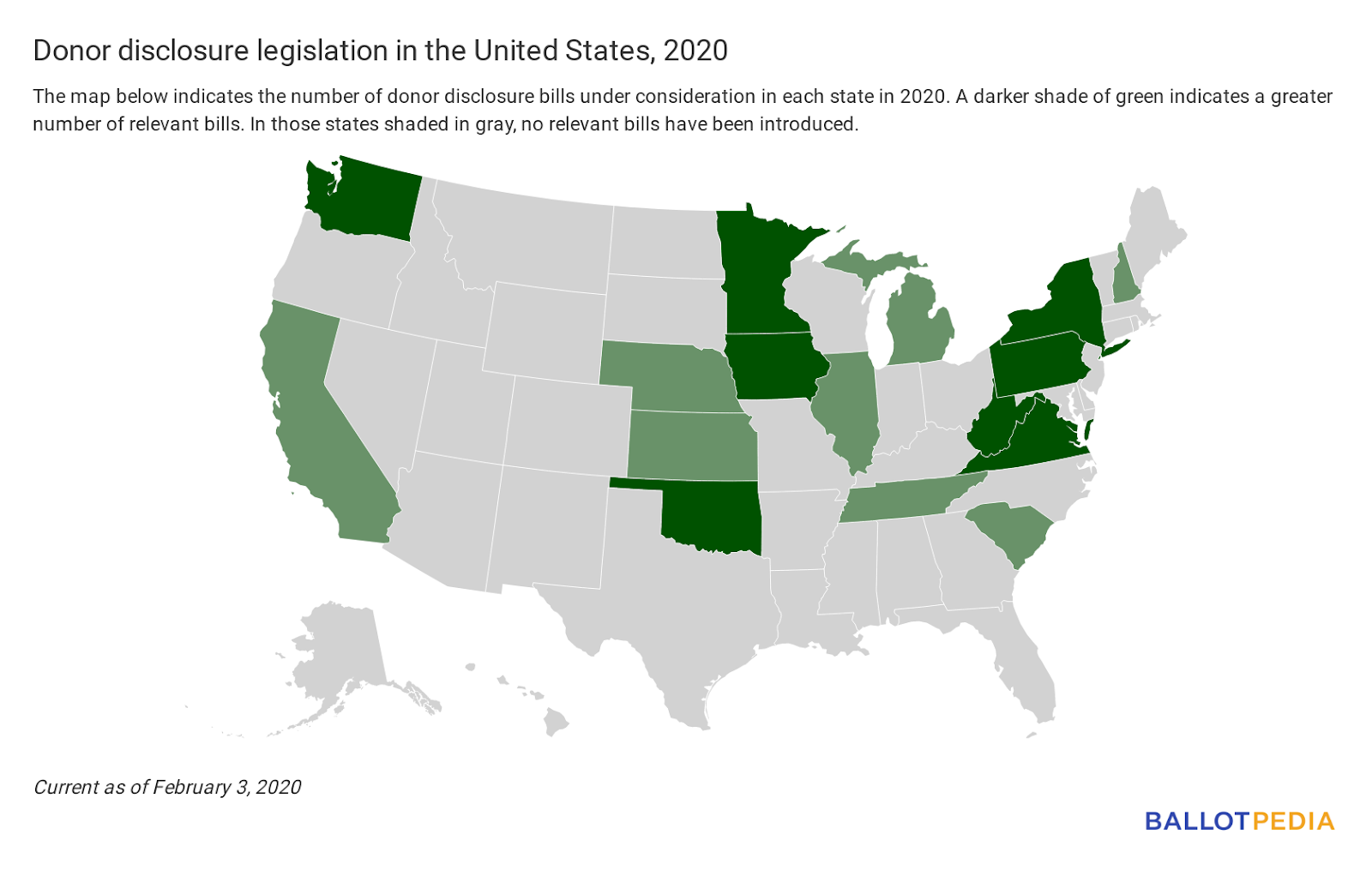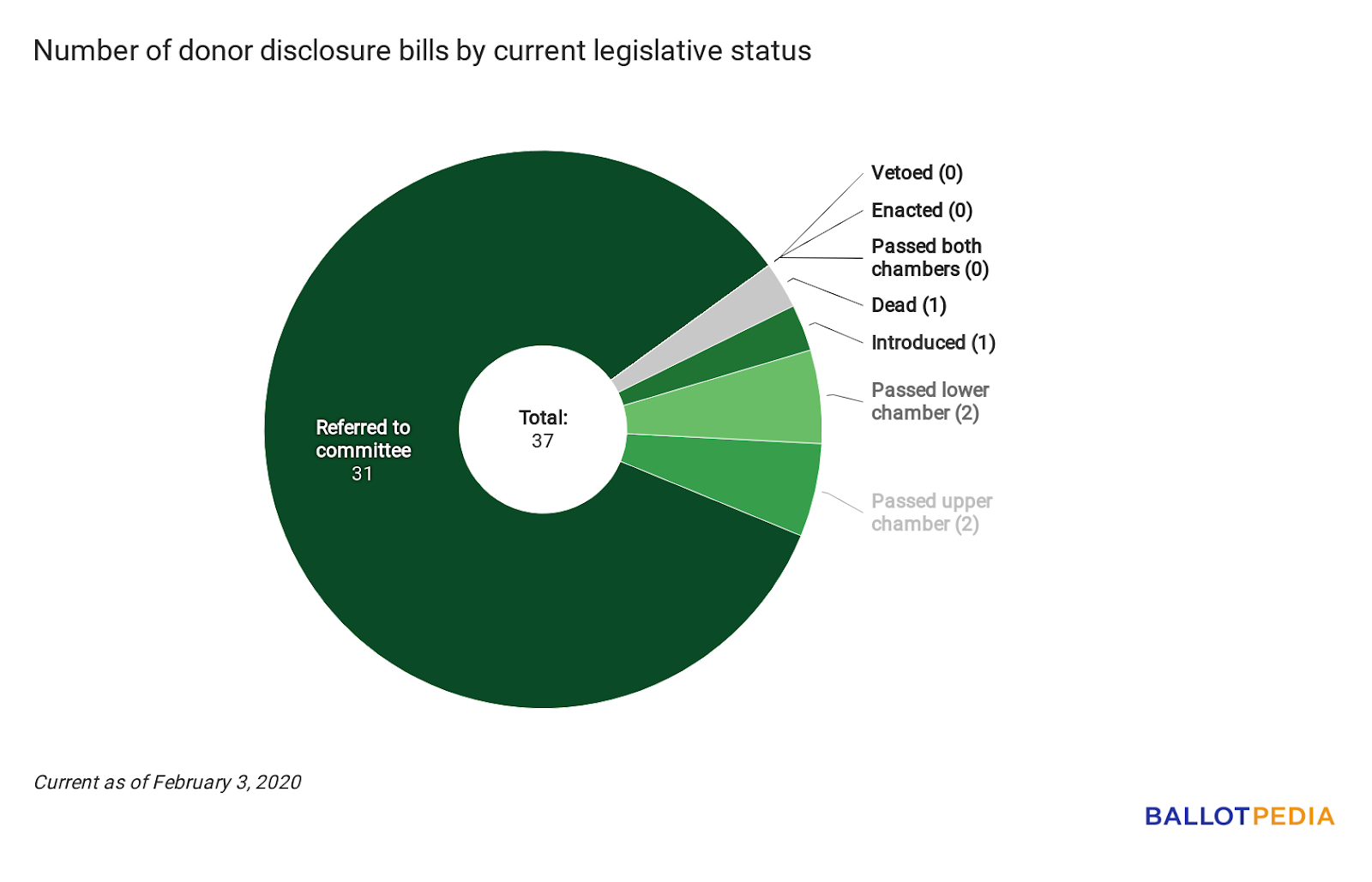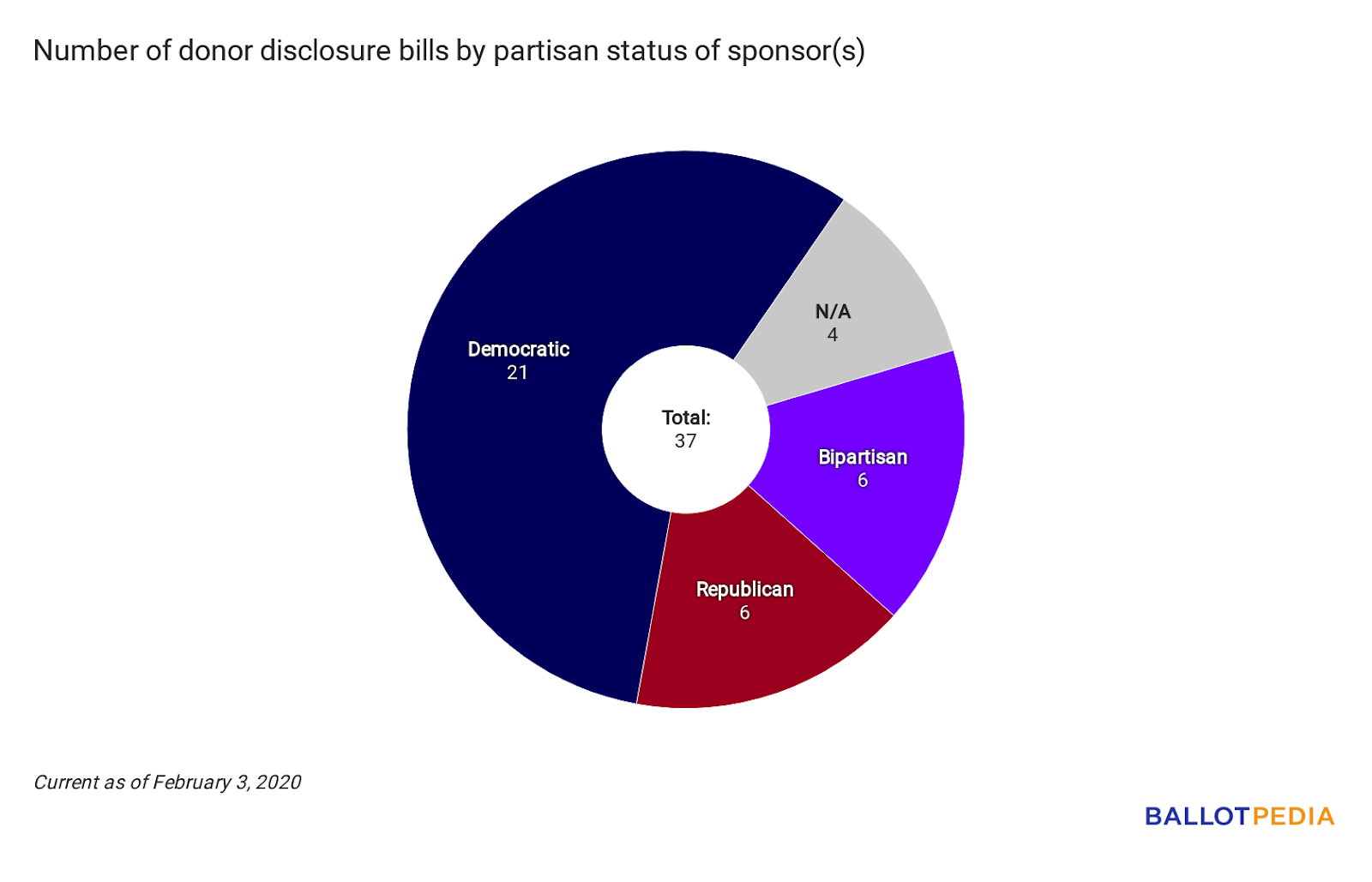|
|
|
|
Welcome to The Disclosure Digest, a look at state and federal disclosure policies for nonprofit organizations and their donors.
Federal judge upholds Santa Fe donor disclosure law
On Jan. 29, Judge Judith Herrera, of the U.S. District Court for the District of New Mexico, upheld a Santa Fe city ordinance requiring entities spending $250 or more to advocate for or against ballot propositions to disclose their donors.
Who are the parties to the suit?
The plaintiff is the Rio Grande Foundation (RGF), an economic policy think tank whose self-described mission is "to increase liberty and prosperity for all of New Mexico by informing citizens of the importance of individual freedom, limited government, and economic opportunity." The defendants include the city of Santa Fe and the Santa Fe Ethics and Campaign Review Board (ECRB), which enforces the city's campaign finance ordinances.
What is at issue?
In 2015, the Santa Fe City Council enacted an ordinance requiring any person or group spending $250 or more on ballot measure campaigns to disclose their donors. Any entity meeting that threshold must report "all contributions received for the purpose of paying for such expenditures." Disclosures must specify the name, address, and occupation of the contributor.
In 2017, Santa Fe conducted a special municipal election in which residents were asked to approve a tax on sweetened drinks. RGF launched a campaign opposing the measure. On April 24, 2017, the ECRB, in response to a citizen complaint, held a hearing to determine whether RGF's campaign expenditures had exceeded the $250 reporting threshold. The ECRB determined that RGF had done so and ordered the group to file the requisite disclosures. On July 26, 2017, RGF sued the city, alleging the ordinance "chills constitutionally protected speech by non-profit groups and their donors," in violation of the First Amendment to the U.S. Constitution and Article II of the New Mexico Constitution.
How did the court rule?
Herrera, who was appointed to the court by President George W. Bush (R), dismissed the suit in favor of the defendants. In her opinion, Herrera wrote,
|
“
|
RGF’s as-applied challenge fails because there is no evidence of threats, reprisal, harassment, or the like of donors or potential donors to RGF or that would-be donors declined to contribute because of the disclosure requirements. RGF did not rely on any other burdens. Because disclosure requirements serve substantial governmental interests, Defendants met their burden of demonstrating a substantial relation between the governmental informational interest and the information required to be
disclosed. Although the Court remains concerned about the potential chilling effect of the ordinance for groups raising and spending small amounts on ballot initiatives, the factual record is insufficient to support the sweeping invalidation of the ordinance that RGF requests[.]
|
”
|
What comes next?
As of Feb. 3, RGF has not indicated whether it intends to appeal Herrera's decision. The case name and number are Rio Grande Foundation v. City of Santa Fe, 1:17-cv-00768-JCH-CG
|
The big picture
Number of relevant bills by state
We're currently tracking 37 pieces of legislation dealing with donor disclosure. On the map below, a darker shade of green indicates a greater number of relevant bills. Click here for a complete list of all the bills we're tracking.

Number of relevant bills by current legislative status

Number of relevant bills by partisan status of sponsor(s)

|
Recent legislative actions
Below is a complete list of legislative actions taken on relevant bills since our last issue. Bills are listed in alphabetical order, first by state then by bill number.
- Oklahoma SB1491: This bill would prohibit public agencies from requiring 501(c) entities to furnish them with personal information about donors.
- Tennessee HB1719: This bill would prohibit public agencies from requiring 501(c) entities to furnish them with personal information about donors.
- Virginia HB849: This bill would subject political campaign communications made via online platforms to the same disclosure requirements currently applied to print media, television, and radio advertisements.
- House approved Jan. 30; referred to Senate Privileges and Elections Committee Jan. 31.
Thank you for reading! Let us know what you think! Reply to this email with any feedback or recommendations. |
|
|
|
|